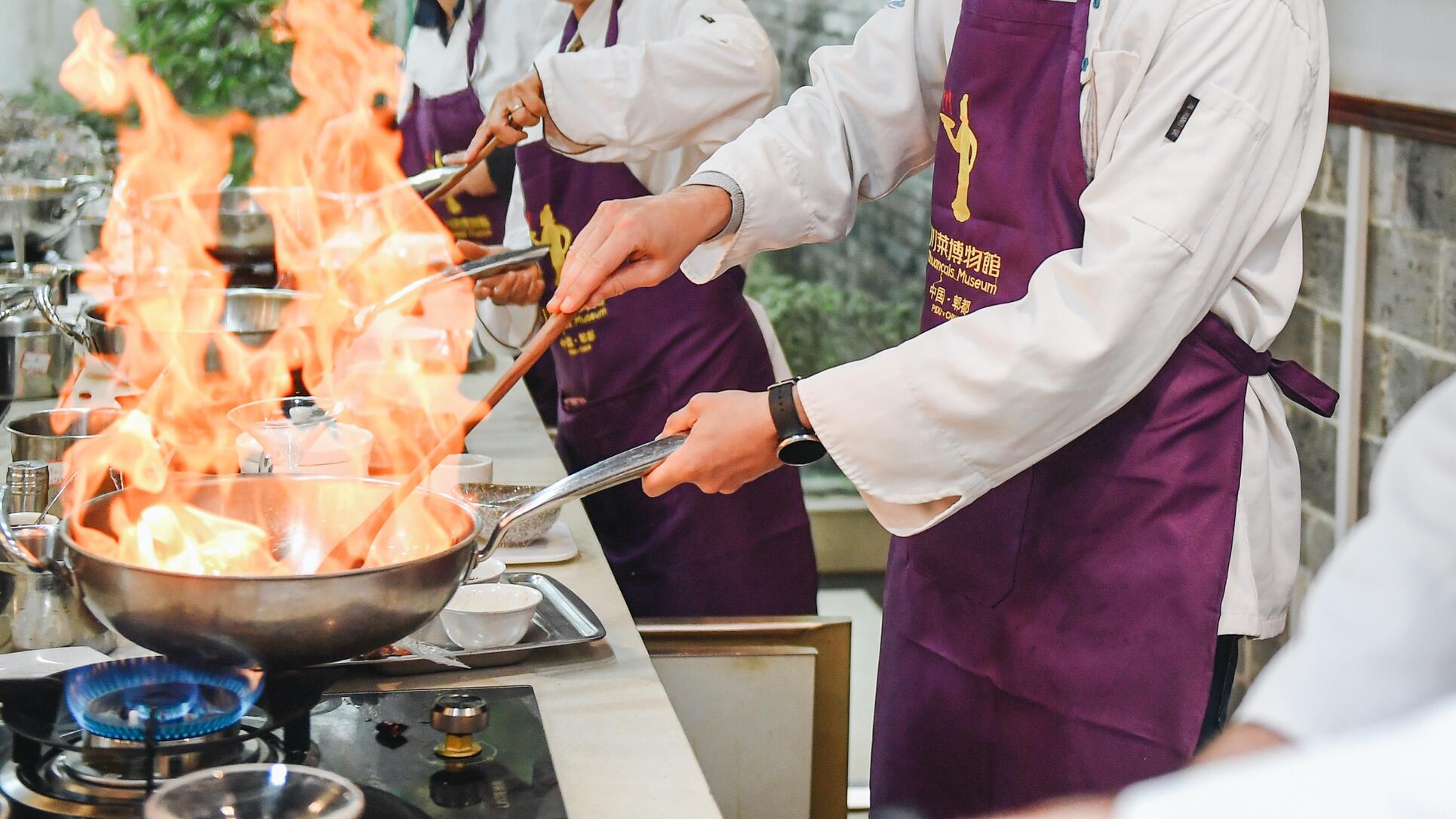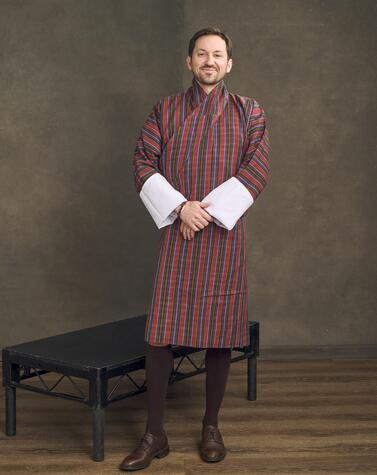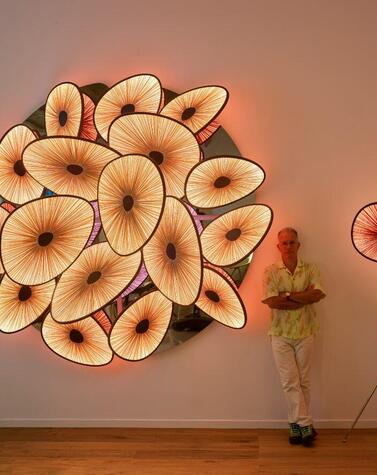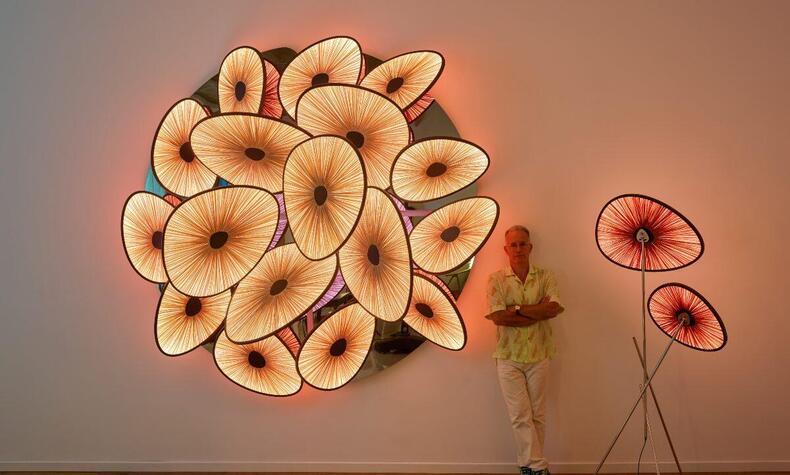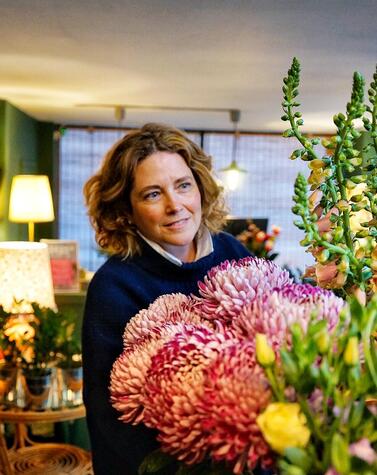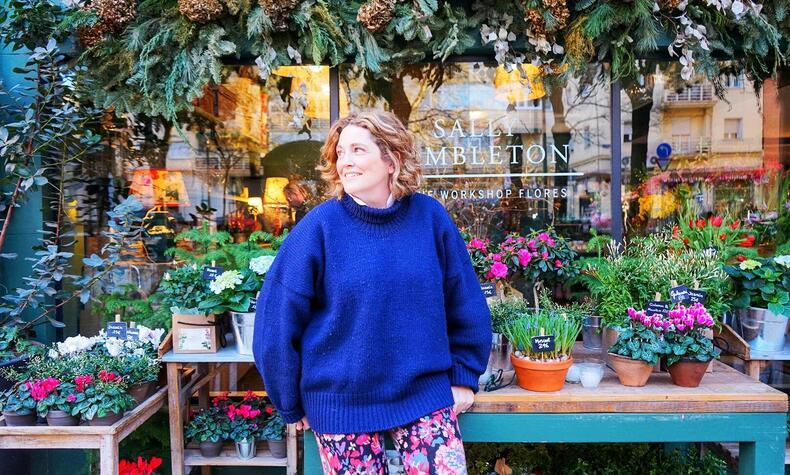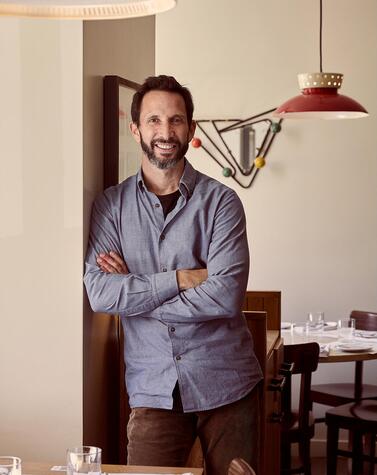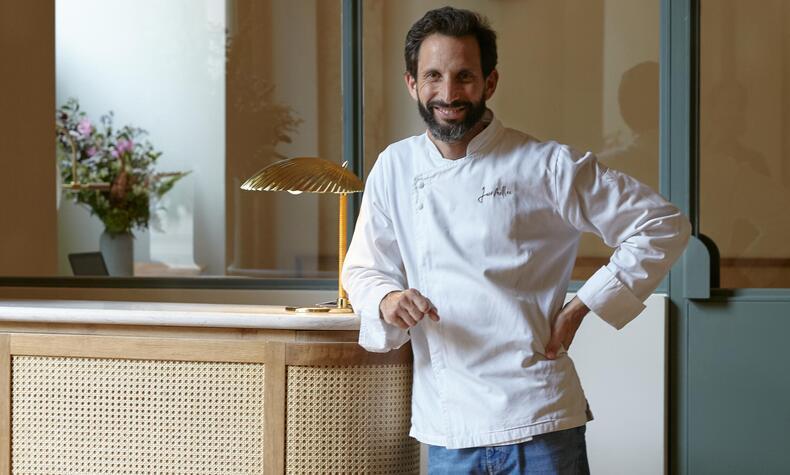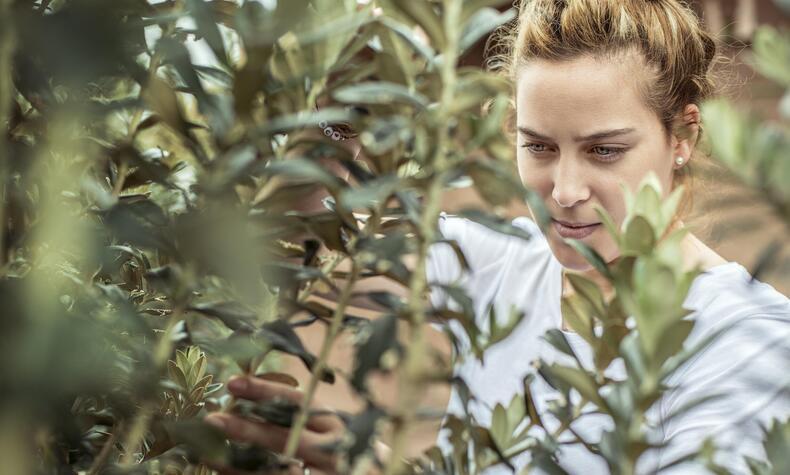Fuchsia Dunlop, the woman who made the world fall in love with Chinese cuisine.
"If something is considered a delicacy in China, I want to understand why. Because the Chinese have a deeper appreciation for food than we do."

Since she settled in Chengdu in the 1990s to study Chinese, Fuchsia Dunlop has dedicated her life to exploring the culinary culture of the world's most populous country, China. She was the first foreigner to be professionally trained at the Sichuan Higher Institute of Cuisine, and since then, she has not stopped studying, cooking, writing, and teaching. Her books, such as Shark's Fin, Sichuan Pepper, or Every Grain of Rice, have helped redefine the perception of Chinese cuisine in the West, dismantling prejudices and showing a gastronomic reality that is deeply sophisticated, diverse, and rooted in centuries of wisdom.
She is an archaeologist of flavors, a cultural ambassador, and an essential bridge between two gastronomic worlds. Her profound books, immersive travels, and clear, passionate writing make Chinese cuisine understood, valued, and contemplated from its historical, social, and sensory complexity.
Dunlop talks about technical learning, misconceptions surrounding Chinese cuisine, her respect for authenticity (with nuances), her travels, and how a simple lunch in a village in Zhejiang can make a difference in a lifetime.
How did you decide to specialize in Chinese cuisine?
When I moved to Chengdu in 1994 as a graduate student, I suddenly found myself in the heart of one of China's most celebrated culinary regions. I was surrounded by intense, exciting, delicious food... and it didn't take me long to realize that I wanted to learn how to cook it. I started out self-taught, but in 1995 I enrolled in a professional course for chefs at the Sichuan Higher Institute of Cuisine. And that's where my serious apprenticeship really began, my real training period.
How has your perception of Chinese cuisine evolved since then?
On the one hand, I have learned a great deal during these almost thirty years. I have come to appreciate much more the amazing diversity and technical sophistication of Chinese cuisine. But, at the same time, I realize more and more how enormous this field is. The concept of "Chinese cuisine" encompasses so many regional traditions, so much local knowledge, that I still have so much more to learn.
Any culinary experiences in China that have particularly marked you?
Yes, I remember a meal in rural Zhejiang province, in 2008, which was one of the main inspirations for my book Every Grain of Rice. It was a farm lunch, prepared by a village elder named Mao Cailan. Most of the dishes were made with local and seasonal vegetables, and there was only a small amount of meat and fish. That meal reminded me of something essential: that traditional Chinese cuisine can be an extraordinary model for healthy and environmentally sustainable eating. Because Chinese cooks have an incredible ability to make vegetables taste delicious, and they often use meat or fish as flavor enhancers, not necessarily as main ingredients. I've enjoyed many such meals in different parts of the country, but that one was very special
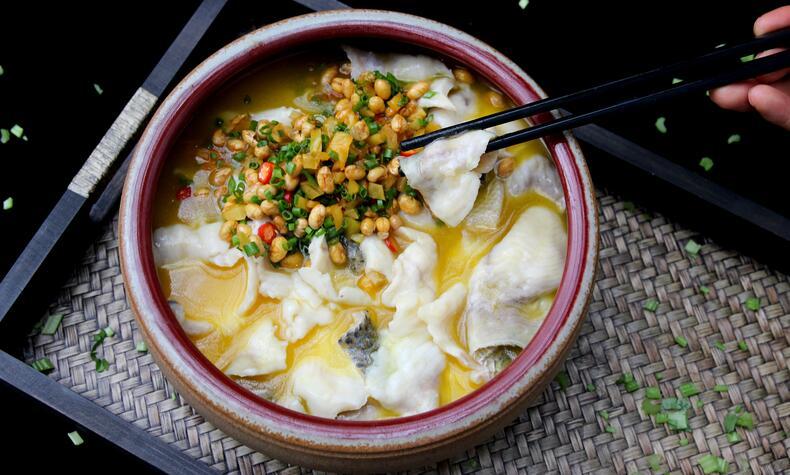
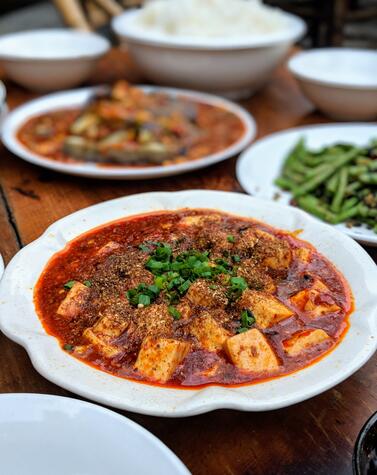
In your books you insist on the importance of authenticity. How do you apply it to Chinese cuisine?
I think "authenticity" is an ambiguous idea, a kind of poisoned blessing. As a foreigner writing about Chinese food, I try to be true to what I have tasted and learned directly in China. I strive to provide readers with recipes and descriptions as close to the real thing as possible. And if someone follows my recipes, I hope the result will be faithful enough to satisfy the palate of a person native to the region I'm talking about.
But I also believe that cuisines are constantly evolving. They are dynamic, alive, and must adapt to the ingredients available, to the context, to the times. That's why I also think we should have the freedom to adapt and reinterpret, without being bound by a rigid vision of what is "authentic."
You have explored many regions of China. Is there one whose cuisine you feel is still underrepresented outside the country?
The truth is, they all are. Even cuisines such as Sichuanese, which is already beginning to gain some international notoriety, are only superficially known outside China. What you see abroad is just the tip of the iceberg, and this comes from someone who has been studying Sichuan cuisine for three decades.
For someone who wants to get started in Chinese cooking at home, what basic ingredients and techniques do you consider essential?
In terms of ingredients, I would recommend: ginger, spring onions, garlic, soy sauce, Chinese vinegar, and sesame oil. And if you want to delve into Sichuanese cuisine, then Pixian spicy bean paste, dried chilies, and Sichuan pepper are also essential.
As for techniques, the key things are chopping ingredients evenly and in small pieces, mastering wok stir-frying, and becoming familiar with steaming.
How did your training at the Sichuan Cooking High School influence your culinary style and your approach to cooking?
I feel it every day, in everything I cook. That training was an extraordinary base to build my career in gastronomy. I feel very grateful for having had the opportunity to learn to cook Chinese - and in particular Sichuanese - cuisine from scratch, in a very traditional and artisanal way, without machines or devices. Just technique, knife, fire, and wok. The concepts I learned there have also greatly influenced how I cook Western food.
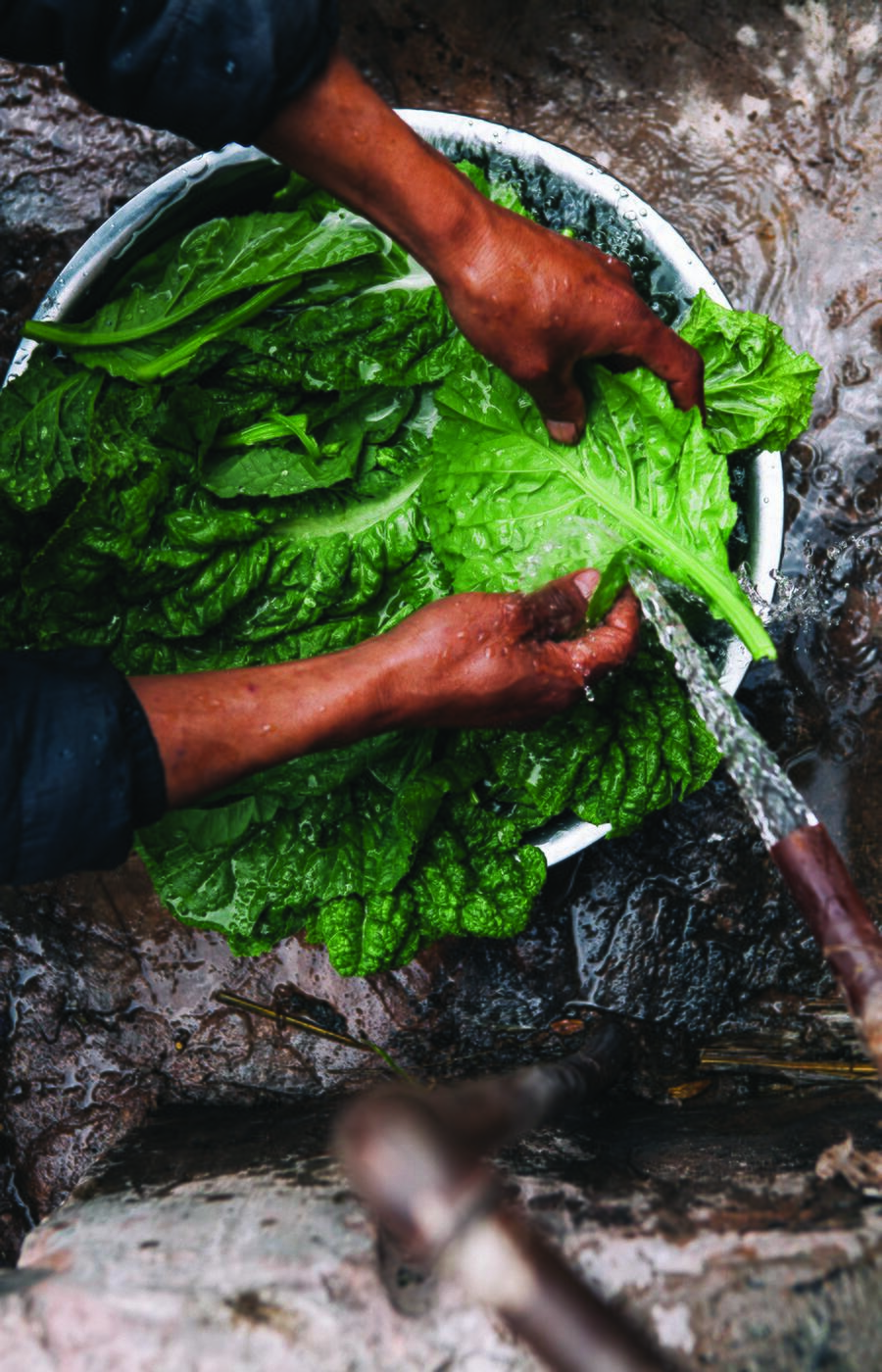
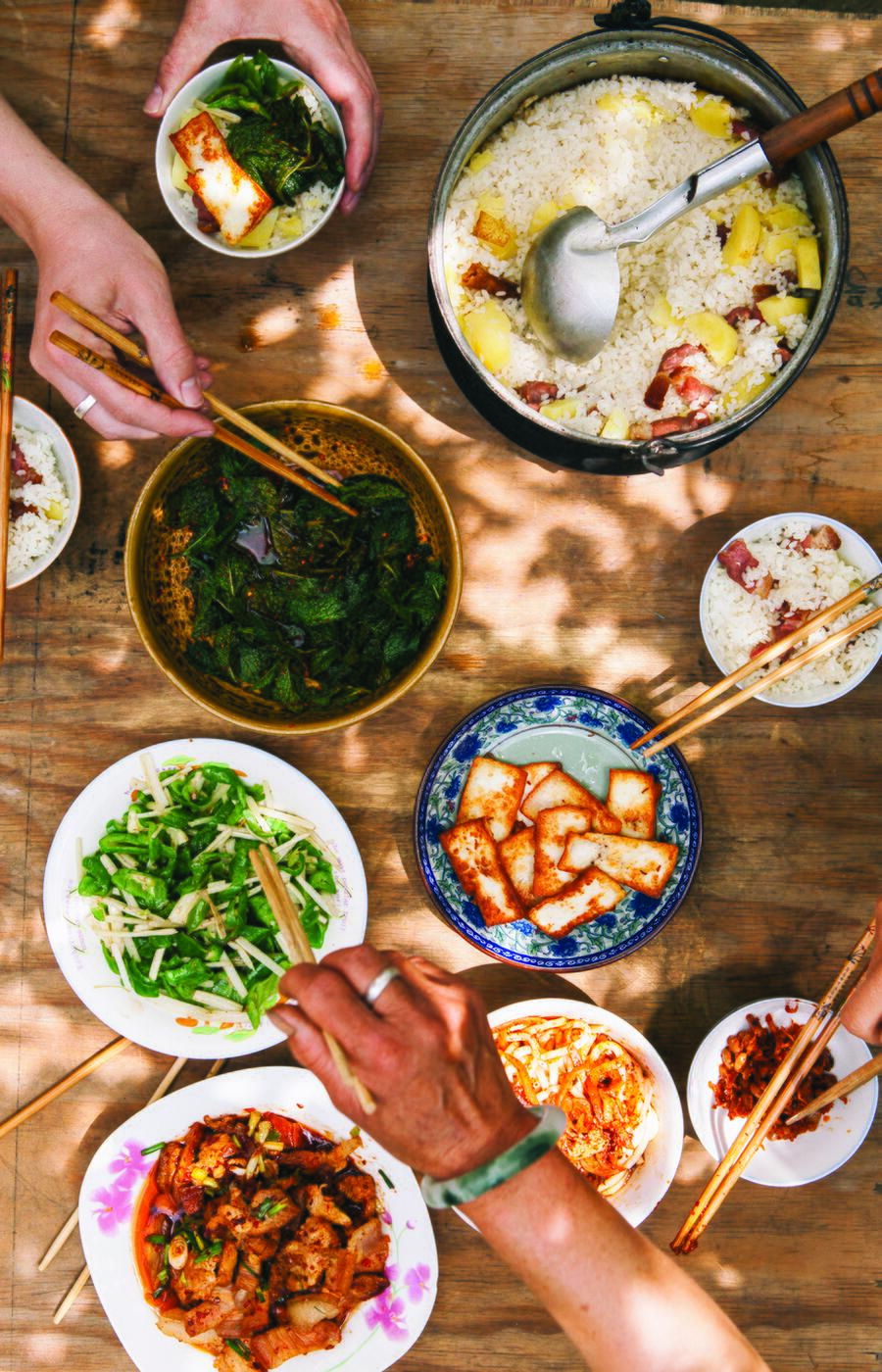
Shark's Fin and Sichuan Pepper
A gastronomic memoir with a taste of revolution
Published in 2008, Shark's Fin and Sichuan Pepper is Fuchsia Dunlop's most iconic book: a blend of personal memoir, cultural essay, and culinary adventure. In it, Dunlop recounts her arrival in Chengdu in the 1990s, her training at the Sichuan cooking school as the first foreigner admitted, and her inner journey into the heart of one of the world's most complex cuisines.
She explores such themes as culture shock, the limits of taste, the ethics of food, and the art of learning with humility. Critically acclaimed and translated into several languages, this book not only changed the way the West looks at Chinese cuisine, but it also changed the lives of many readers who, after reading it, learned to taste with different eyes.

What do you think is the biggest misunderstanding about Chinese food?
Many Westerners tend to think that Chinese food is tasty but unhealthy, or that it must necessarily be cheap. Both are misconceptions, completely wrong. Chinese cuisine has understood for more than 2,000 years that diet and health are deeply related. And it has an extremely sophisticated culinary tradition, with thoughtful gastronomy, complex and ambitious banquet cuisines, as well as extremely high-quality street and rural food.
Is there a technique or dish that you found particularly difficult to master?
Yes, the advanced stir-fry. Everyone can do simple stir-fries at home, but the wok is also used for extremely precise and delicate cooking that takes a lot of time and practice to master. It also took me quite a while to get comfortable wrapping baozi, although I couldn't say exactly why.
Have you discovered any culinary traditions or stories that particularly surprised you during your travels?
Too many to name! Chinese cuisine continues to surprise me constantly. It is inexhaustible.
How do you see Chinese cuisine evolving in the world in the coming years?
I hope it will come to a deeper understanding by Western audiences. Let people outside China realize how much they can learn from this cuisine, in terms of technique, philosophy, taste, and health.
Are you working on any new projects?
Yes! I am currently writing a new cookbook.
